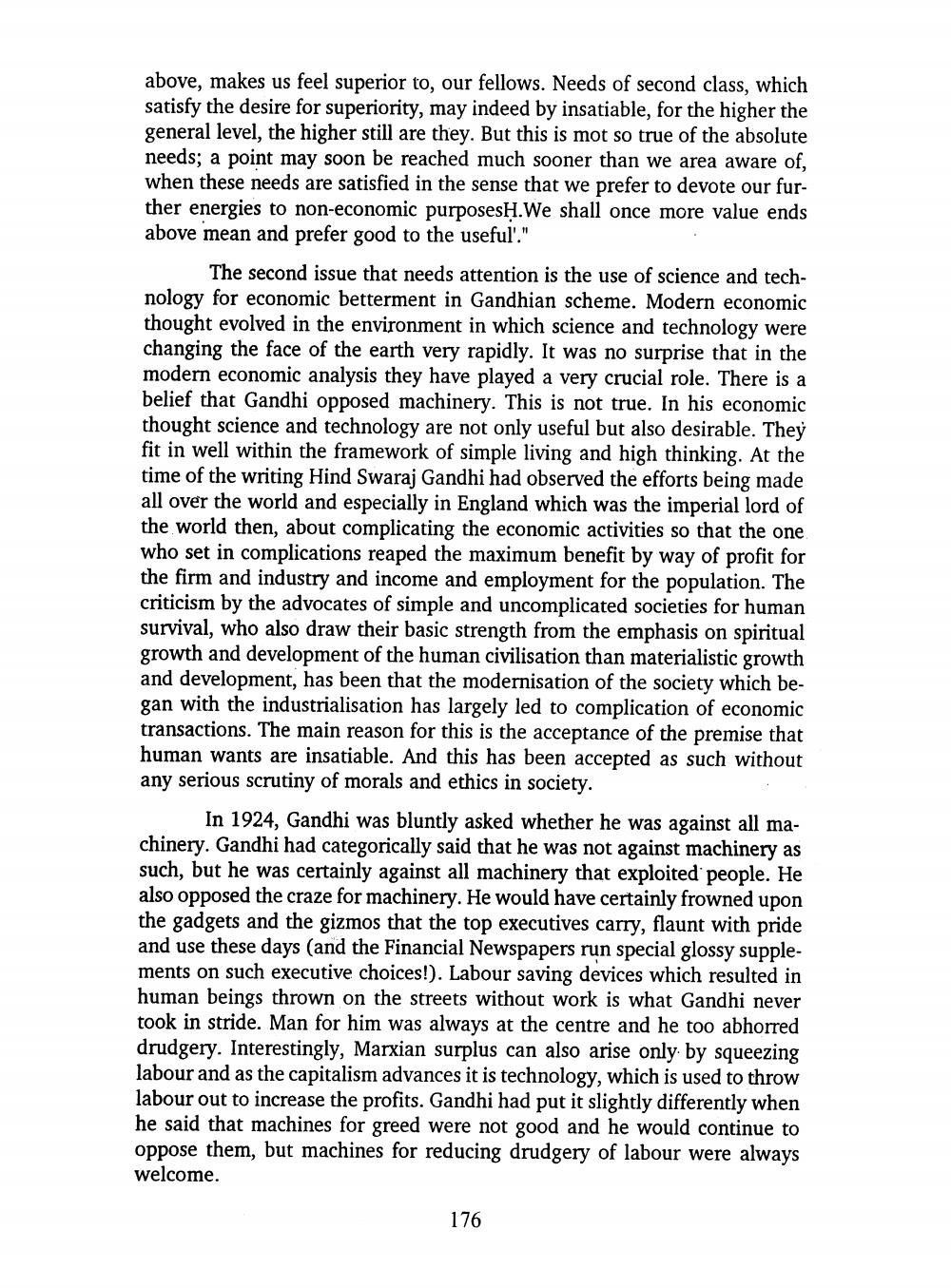________________
above, makes us feel superior to, our fellows. Needs of second class, which satisfy the desire for superiority, may indeed by insatiable, for the higher the general level, the higher still are they. But this is mot so true of the absolute needs; a point may soon be reached much sooner than we area aware of, when these needs are satisfied in the sense that we prefer to devote our fur. ther energies to non-economic purposesH.We shall once more value ends above mean and prefer good to the useful'."
The second issue that needs attention is the use of science and technology for economic betterment in Gandhian scheme. Modern economic thought evolved in the environment in which science and technology were changing the face of the earth very rapidly. It was no surprise that in the modern economic analysis they have played a very crucial role. There is a belief that Gandhi opposed machinery. This is not true. In his economic thought science and technology are not only useful but also desirable. They fit in well within the framework of simple living and high thinking. At the time of the writing Hind Swaraj Gandhi had observed the efforts being made all over the world and especially in England which was the imperial lord of the world then, about complicating the economic activities so that the one who set in complications reaped the maximum benefit by way of profit for the firm and industry and income and employment for the population. The criticism by the advocates of simple and uncomplicated societies for human survival, who also draw their basic strength from the emphasis on spiritual growth and development of the human civilisation than materialistic growth and development, has been that the modernisation of the society which began with the industrialisation has largely led to complication of economic transactions. The main reason for this is the acceptance of the premise that human wants are insatiable. And this has been accepted as such without any serious scrutiny of morals and ethics in society.
In 1924, Gandhi was bluntly asked whether he was against all machinery. Gandhi had categorically said that he was not against machinery as such, but he was certainly against all machinery that exploited people. He also opposed the craze for machinery. He would have certainly frowned upon the gadgets and the gizmos that the top executives carry, flaunt with pride and use these days (and the Financial Newspapers run special glossy supplements on such executive choices!). Labour saving devices which resulted in human beings thrown on the streets without work is what Gandhi never took in stride. Man for him was always at the centre and he too abhorred drudgery. Interestingly, Marxian surplus can also arise only by squeezing labour and as the capitalism advances it is technology, which is used to throw labour out to increase the profits. Gandhi had put it slightly differently when he said that machines for greed were not good and he would continue to oppose them, but machines for reducing drudgery of labour were always welcome.
176




